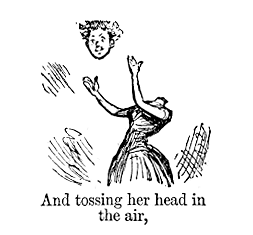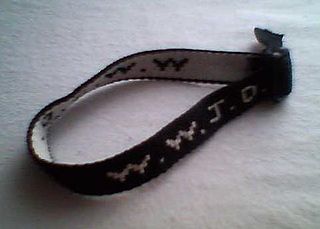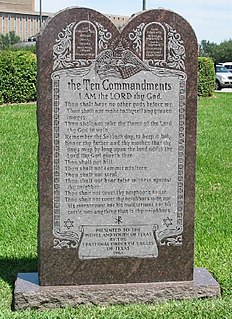Related Research Articles

Anglicanism is a Western Christian tradition that has developed from the practices, liturgy, and identity of the Church of England following the English Reformation.
The Apostles' Creed, sometimes titled the Apostolic Creed or the Symbol of the Apostles is a Christian creed or "symbol of faith".
Born again, or to experience the new birth, is a phrase, particularly in evangelicalism, that refers to "spiritual rebirth", or a regeneration of the human spirit from the Holy Spirit, contrasted with physical birth.

Book of Common Prayer (BCP) is the short title of a number of related prayer books used in the Anglican Communion, as well as by other Christian churches historically related to Anglicanism. The original book, published in 1549 in the reign of Edward VI, was a product of the English Reformation following the break with Rome. The work of 1549 was the first prayer book to include the complete forms of service for daily and Sunday worship in English. It contained Morning Prayer, Evening Prayer, the Litany, and Holy Communion and also the occasional services in full: the orders for Baptism, Confirmation, Marriage, "prayers to be said with the sick", and a funeral service. It also set out in full the "propers" : the introits, collects, and epistle and gospel readings for the Sunday service of Holy Communion. Old Testament and New Testament readings for daily prayer were specified in tabular format as were the Psalms; and canticles, mostly biblical, that were provided to be said or sung between the readings.

The Lord's Prayer, also called the Our Father, is a central Christian prayer which, according to the New Testament, Jesus taught as the way to pray:

The Holy Rosary, also known as the Dominican Rosary, or simply the Rosary, refers to a set of prayers used in the Catholic Church and to the string of knots or beads used to count the component prayers. When referring to the prayer, the word is usually capitalized ; when referring to the beads, it is written with a lower-case initial letter.

The Jesus Prayer, also known as The Prayer, is a short formulaic prayer esteemed and advocated especially within the Eastern churches: "Lord Jesus Christ, Son of God, have mercy on me, a sinner." The prayer has been widely taught and discussed throughout the history of the Orthodox Church. The ancient and original form did not include the words "a sinner", which were added later. It is often repeated continually as a part of personal ascetic practice, its use being an integral part of the eremitic tradition of prayer known as hesychasm. The prayer is particularly esteemed by the spiritual fathers of this tradition as a method of cleaning and opening up the mind and after this the heart (kardia) and bringing about firstly the Prayer of the Mind or more correctly the Noetic Prayer and after this the Prayer of the Heart. The Prayer of the Heart is considered to be the Unceasing Prayer that the Apostle Paul advocates in the New Testament. Theophan the Recluse regarded the Jesus Prayer stronger than all other prayers by virtue of the power of the Holy Name of Jesus.

A cliché is an element of an artistic work, saying, or idea that has become overused to the point of losing its original meaning or effect, even to the point of being trite or irritating, especially when at some earlier time it was considered meaningful or novel. In phraseology, the term has taken on a more technical meaning, referring to an expression imposed by conventionalized linguistic usage.

The phrase "What would Jesus do?", often abbreviated to WWJD, became popular particularly in the United States in the late 1800s after the widely read book by Charles Sheldon entitled, “In His Steps: What Would Jesus Do.” The phrase had a resurgence in the US and elsewhere in the 1990s and as a personal motto for adherents of Christianity who used the phrase as a reminder of their belief in a moral imperative to act in a manner that would demonstrate the love of Jesus through the actions of the adherents.
The collect is a short general prayer of a particular structure used in Christian liturgy.
Religions with the belief in a future judgment or a resurrection of the dead or of purgatory often offer prayers on behalf of the dead to God.

Marriage vows are promises each partner in a couple makes to the other during a wedding ceremony based upon Western Christian norms. They are not universal to marriage and not necessary in most legal jurisdictions. They are not even universal within Christian marriage, as Eastern Christians do not have marriage vows in their traditional wedding ceremonies.

Kyrie, a transliteration of Greek Κύριε, vocative case of Κύριος (Kyrios), is a common name of an important prayer of Christian liturgy, also called the Kyrie eleison.

The phrase "blood, toil, tears and sweat" became famous in a speech given by Winston Churchill to the House of Commons of the Parliament of the United Kingdom on 13 May 1940. The speech is sometimes known by that name.

Anglican eucharistic theology is diverse in practice, reflecting the comprehensiveness of Anglicanism. Its sources include prayer book rubrics, writings on sacramental theology by Anglican divines, and the regulations and orientations of ecclesiastical provinces. The principal source material is the Book of Common Prayer, specifically its eucharistic prayers and Article XXVIII of the Thirty-Nine Articles. Article XXVIII comprises the foundational Anglican doctrinal statement about the Eucharist, although its interpretation varies among churches of the Anglican Communion and in different traditions of churchmanship such as Anglo-Catholicism and Evangelical Anglicanism.
Lex orandi, lex credendi, sometimes expanded as Lex orandi, lex credendi, lex vivendi, is a motto in Christian tradition, which means that prayer and belief are integral to each other and that liturgy is not distinct from theology. It refers to the relationship between worship and belief. As an ancient Christian principle it provided a measure for developing the ancient Christian creeds, the canon of scripture, and other doctrinal matters. It is based on the prayer texts of the Church, that is, the Church's liturgy. In the Early Church, there was liturgical tradition before there was a common creed, and before there was an officially sanctioned biblical canon. These liturgical traditions provided the theological framework for establishing the creeds and canon.

The Episcopal Church (TEC), based in the United States with additional dioceses elsewhere, is a member church of the worldwide Anglican Communion. It is a mainline Christian denomination and is divided into nine provinces. The presiding bishop of the Episcopal Church is Michael Bruce Curry, the first African-American bishop to serve in that position.
Abundant life is a term used primarily in Christianity.
A monotonic scale is a musical scale consisting of only one note in the octave. Having a deliberate fixed note, the monotonic is still a musical form rather than a total absence of melody. The monotonic stands in contrast to more common musical scales, such as the pentatonic and modern, common Western heptatonic and chromatic scales.

The idea that a common Judeo-Christian ethics or Judeo-Christian values underpins American politics, law and morals has been part of the "American civil religion" since the 1940s. In recent years, the phrase has been associated with American conservatism, but the concept—though not always the exact phrase—has frequently featured in the rhetoric of leaders across the political spectrum, including that of Franklin D. Roosevelt and Lyndon B. Johnson.
References
- ↑ Osmańczyk, Edmund Jan; Anthony Mango (2003). Encyclopedia of the United Nations and international agreements (3rd ed.). Taylor & Francis. p. 2941. ISBN 0-415-93922-4.
- ↑ "John 10:10". Bible Gateway. Retrieved 3 June 2015.
- ↑ The Online Book of Common Prayer. 1979. p. 164. Retrieved 3 June 2015.
